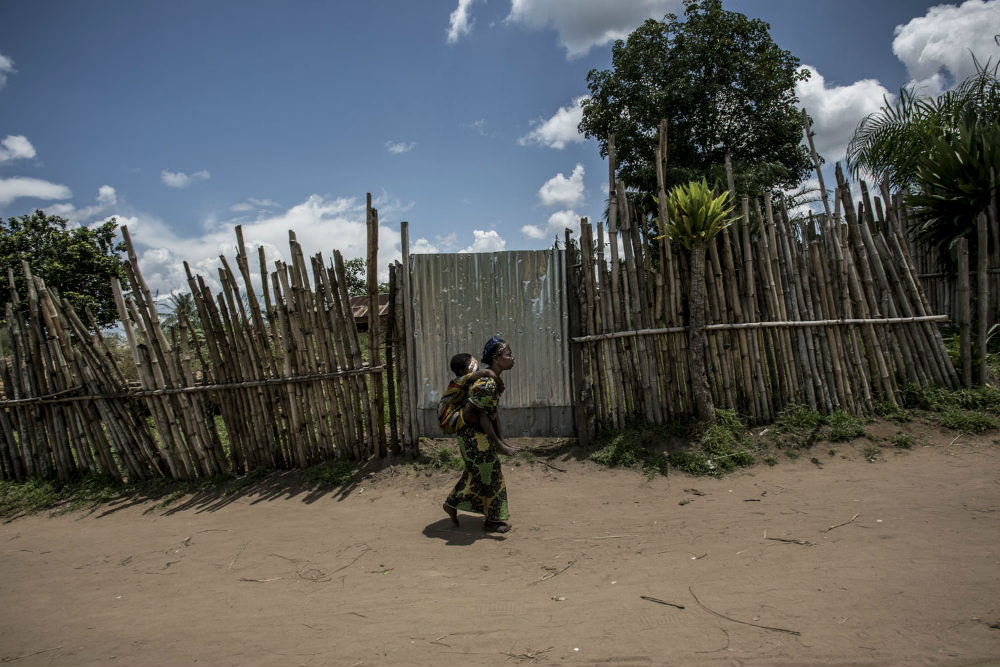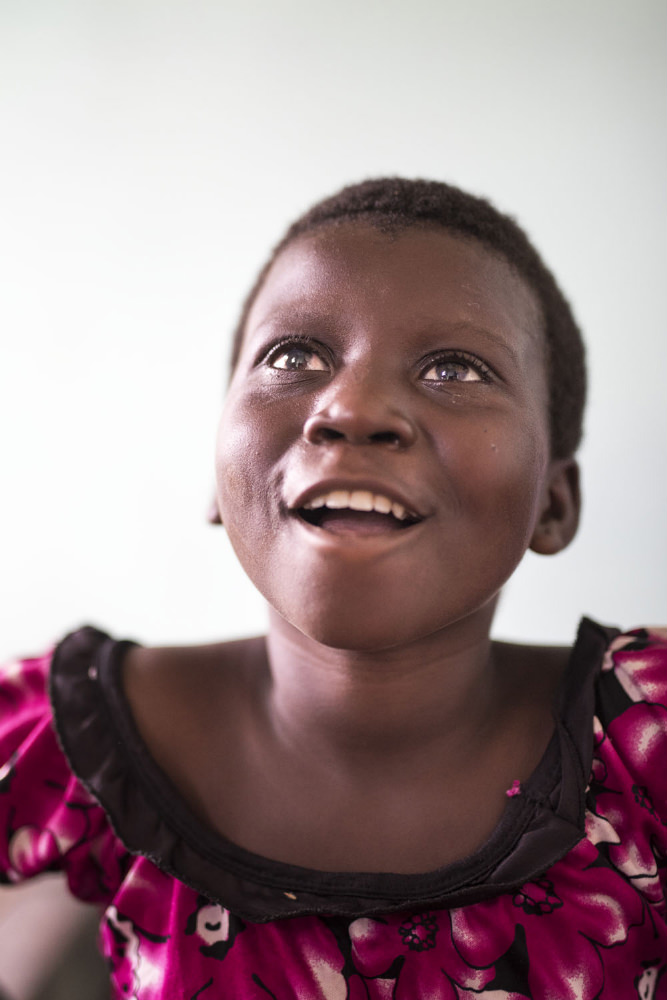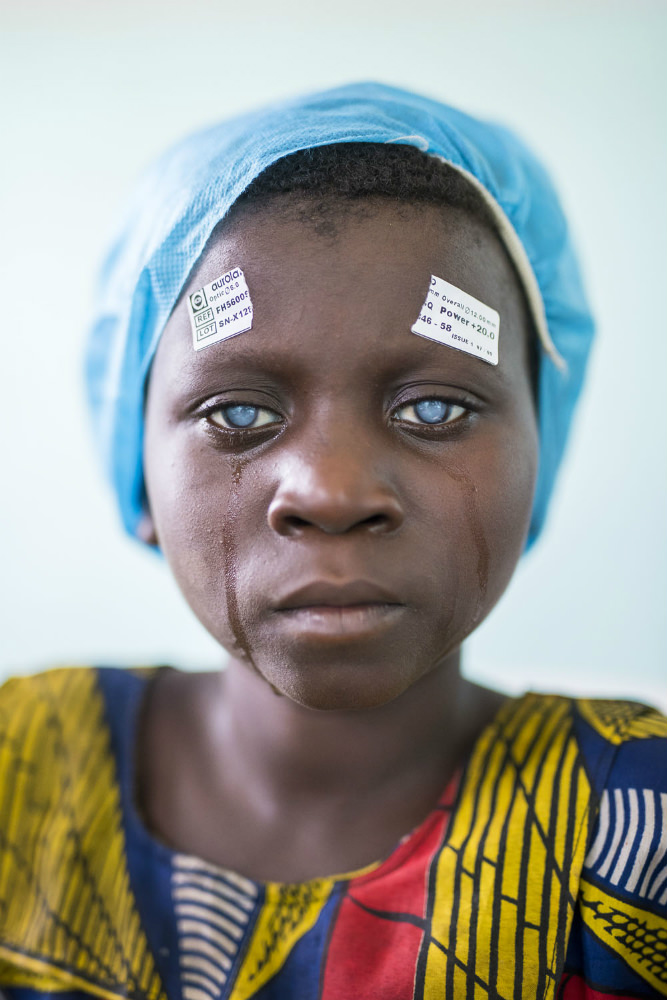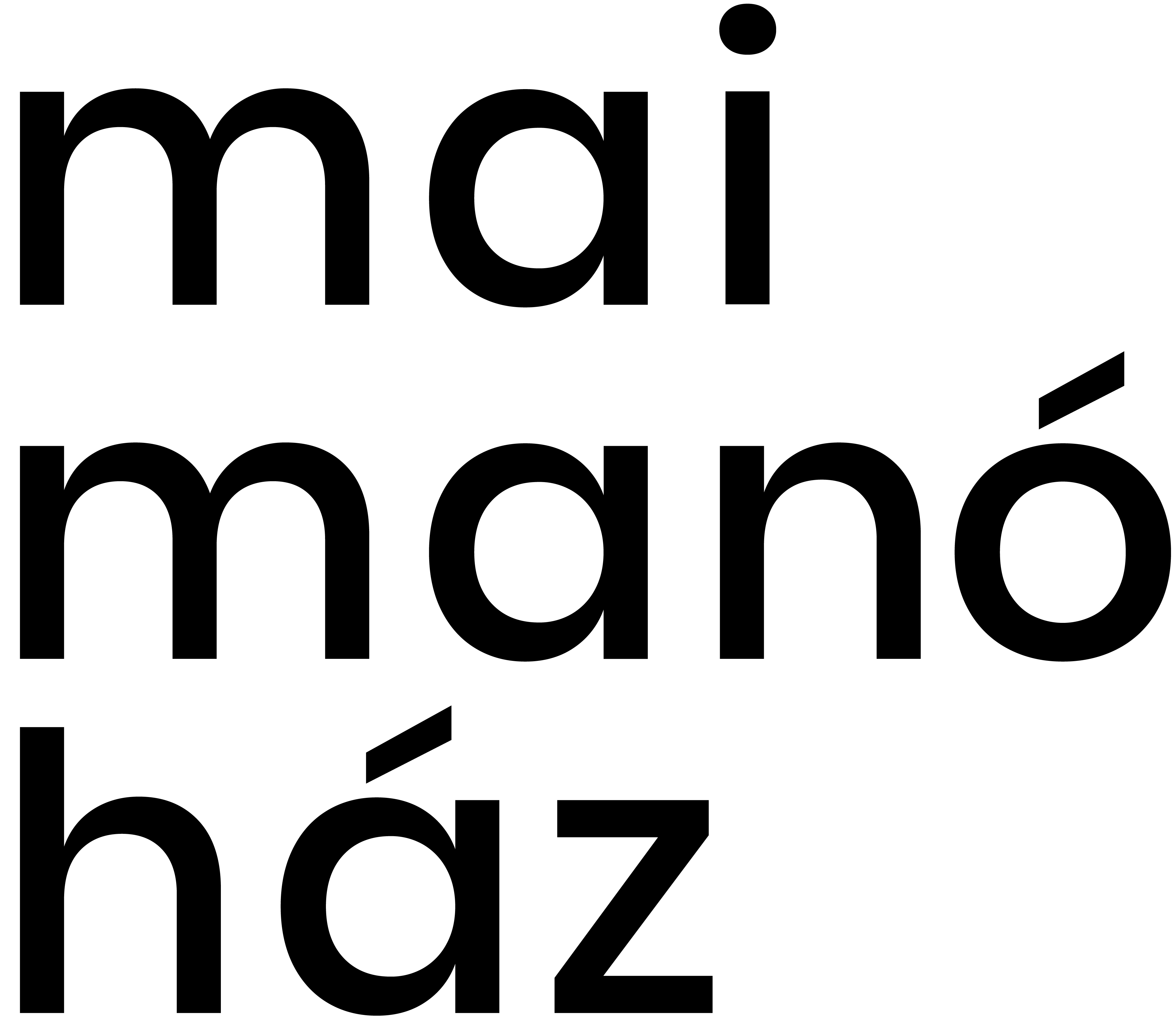András D. Hajdú – Cataracta
Curated by: Klára SZARKA
Open to the public:
June 12 – July 26, 2015
on Weekdays 2pm - 7pm
on Weekends 11am - 7pm
For twenty years, in the heart of Africa, Dr. Richard Hardi eye doctor has been healing patients in the Democratic Republic of Congo. Richard works in Mbuji-Mayi, the center of a country (which is as big as two Hungarian counties combined), in the region’s only well-equipped operating room. He sets out from here, as on a star trail, to remote corners of the county to give a chance to patients who live 600-800 kilometers from the eye center. Due to the non-existent public transportation system, patients (often elderly and children) make their way on foot. Patients who often have almost completely lost their eyesight to cataract come to Richard’s temporary operating room, holding on to their relatives or settling on the trunk of a bike.
As Richard puts it: “Taking 300-400 kilometers on these roads is as if in Budapest I asked one patient’s relative to push their 70-year-old blind grandmother to Paris on the trunk of their bike.”
For many, this is the only chance not to live helpless and blind for the rest of their lives inside of some mud hut. The vast majority of patients, however, suffers from simple cataract. Due to the strength of the equatorial sun and the lack of medical screening, this region is particularly affected by disorders related to cataract, regardless of the fact that this eye disease could be treated with a simple, 15-minute routine surgery.
In case both eyes are affected, this surgery takes 30 minutes.



Mbedji
The 7-year-old Mbedji is blind in both eyes for three years due to cataract. The family brought the little girl to Dr. Richard’s from their hometown Nkembe, 80 kms from the temporary operating room in Kole. They led her by her hand for most of the road, while on the more difficult paths her grandmother carried Mbedji on her back. As they only arrived at the operating room on the last day of surgeries, Richard, disregarding all the rules, performed surgery on both of her eyes – who could tell when the family would be able to set out on such a journey again. The surgery was successful and Mbedji could see perfectly by the next day. Getting her vision back, she also regained her life: she can go to school and later she can have a family as well – she is no longer condemned to solitude and misery.
András D. Hajdú was born in Budapest in 1981. He earned his M.A. in English Literature in 2012, writing his thesis on American war photography. He is mainly interested in documentary photography, especially in capturing Hungarian and Eastern European realities. His series usually are a result of work encompassing several years. He often employs multimedia tools. For ten years, he worked for the online portal Origo as a photojournalist; today he works as a freelance photographer and teaches at the Photojournalism Department at the University of Applied Sciences, Budapest.
He has won multiple awards at various distinguished competitions: first prize at the Pictures of the Year International (POYi) Feature Picture story; 19-times award winner at the Hungarian Press Photo competition (two-time winner of both the Grand Prize and the Munkácsi Márton Prize). He received the Pécsi József Photo Art Scholarship, as well as the Robert Bosch Stiftung scholarship; he also received the Hégető Honorka multimedia award on three occasions. In 2014, he received the Károly Hemző Prize.
The exhibition is free to visit.
